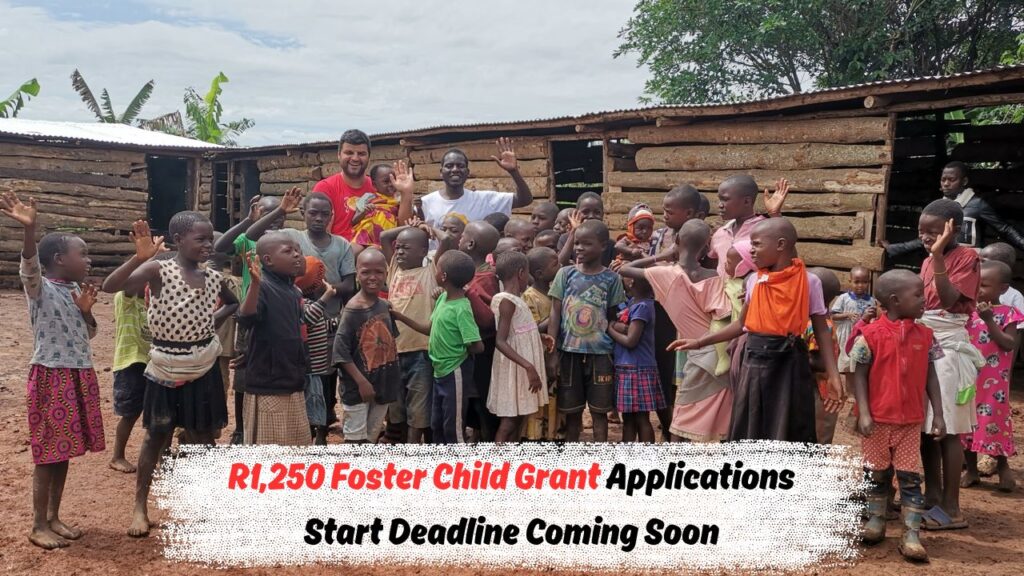Foster Child Grant Applications: In South Africa, families nationwide are being given a vital opportunity to apply for the R1,250 Foster Child Grant. This financial support is designed to assist foster families with the costs associated with raising a foster child. With the rising cost of living, this grant provides a lifeline for many, ensuring that foster children have the necessary resources to thrive. The South African government recognizes the important role that foster families play in society, and through this initiative, they aim to offer meaningful support to those who open their homes to vulnerable children. As applications open, it is crucial for eligible families to understand the process, requirements, and benefits of this grant.

Understanding the R1,250 Foster Child Grant for Eligible Families
The R1,250 Foster Child Grant is a government initiative aimed at providing financial support to families who take on the responsibility of fostering children. This grant is essential in helping cover basic needs such as food, clothing, and educational expenses for the child. Eligibility for this grant requires the applicant to be a South African citizen or permanent resident, and the child must be in the legal care of the foster parent. The grant is meant to relieve some of the financial burdens that come with fostering, thereby encouraging more families to participate in fostering programs. The application process involves providing relevant documentation, including proof of residency, identification, and a court order confirming the foster care placement. By facilitating this grant, the government hopes to ensure that foster children have access to a stable and nurturing environment.
Steps to Apply for the R1,250 Foster Child Grant in South Africa
Applying for the R1,250 Foster Child Grant involves several key steps. Initially, prospective applicants must gather all necessary documentation, such as certified copies of both the applicant’s and the child’s identification documents, proof of residence, and a court order certifying the foster care arrangement. Once this is in place, applications can be submitted through local South African Social Security Agency (SASSA) offices. It is advised to visit a SASSA office in person to ensure all documentation is correctly submitted and to receive any assistance needed during the application process. After submission, the application will be reviewed, and if approved, payments will commence monthly. It’s crucial for applicants to follow up on their application status regularly to ensure that there are no delays in receiving the grant.
Benefits of the R1,250 Foster Child Grant for Foster Families
The R1,250 Foster Child Grant offers numerous benefits to foster families across South Africa. Primarily, it provides financial relief by covering essential costs associated with raising a child, such as education, nutrition, and healthcare. This support plays a significant role in enhancing the quality of life for foster children, ensuring they receive the same opportunities as their peers. Additionally, the grant encourages more families to open their homes to foster children, addressing the need for safe and loving environments for children who cannot live with their biological families. By reducing the financial burden on foster parents, the grant enables them to focus on providing emotional and developmental support to the child, which is crucial for their overall well-being.
Impact of the R1,250 Foster Child Grant on South African Society
The R1,250 Foster Child Grant has a substantial impact on South African society, as it directly supports vulnerable children and the families that care for them. By offering financial assistance, the grant mitigates some of the economic challenges faced by foster families, allowing them to provide a stable and nurturing environment. This support not only benefits the individual children but also contributes to the greater good by promoting social stability and reducing child poverty. Furthermore, the grant highlights the government’s commitment to child welfare and its recognition of the importance of family in a child’s life. By empowering foster families, the R1,250 Foster Child Grant plays a pivotal role in shaping a more inclusive and supportive society for all children.




